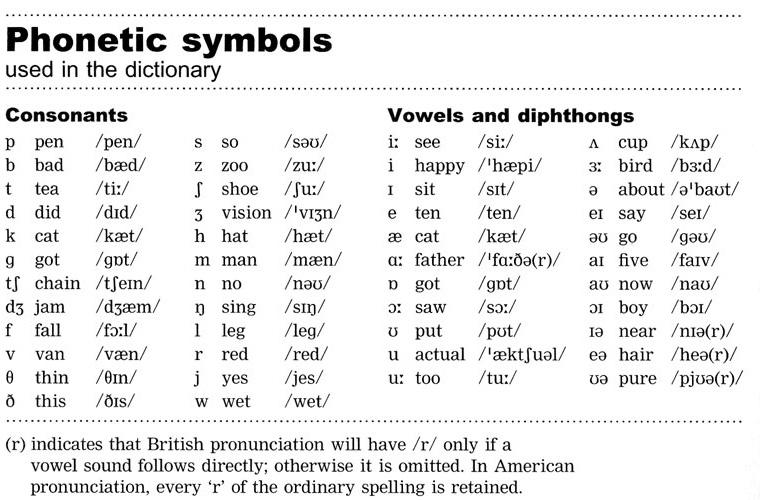
Lecturer Peter Monnerjahn, BA
Phonetic Symbols

© Oxford University Press
Texts for Practising Pronunciation
Arthur the Rat
Once there was a young rat named Arthur, who could never make up his mind. Whenever his friends asked him if he would like to go out with them, he would only answer, “I don’t know.” He wouldn’t say “yes” or “no” either. He would always shirk making a choice.
His aunt Helen said to him, “Now look here. No one is going to care for you if you carry on like this. You have no more mind than a blade of grass.”
One rainy day, the rats heard a great noise in the loft. The pine rafters were all rotten, so that the barn was rather unsafe. At last the joists gave way and fell to the ground. The walls shook and all the rats’ hair stood on end with fear and horror. “This won’t do,” said the captain. “I’ll send out scouts to search for a new home.”
Within five hours the ten scouts came back and said, “We found a stone house where there is room and board for us all. There is a kindly horse named Nelly, a cow, a calf, and a garden with an elm tree.” The rats crawled out of their little houses and stood on the floor in a long line. Just then the old one saw Arthur. “Stop,” he ordered coarsely. “You are coming, of course?” “I’m not certain,” said Arthur, undaunted. “The roof may not come down yet.” “Well,” said the angry old rat, “we can’t wait for you to join us. Right about face. March!”
Arthur stood and watched them hurry away. “I think I’ll go tomorrow,” he calmly said to himself, but then again “I don’t know; it’s so nice and snug here.”
That night there was a big crash. In the morning some men—with some boys and girls—rode up and looked at the barn. One of them moved a board and he saw a young rat, quite dead, half in and half out of his hole. Thus the shirker got his due.
Betty Botter
Betty Botter had some butter,
“But,” she said, “this butter’s bitter.
If I bake this bitter butter,
it would make my batter bitter.
But a bit of better butter—
that would make my batter better.”
So she bought a bit of butter,
better than her bitter butter,
and she baked it in her batter,
and the batter was not bitter.
So ’twas better Betty Botter
bought a bit of better butter.
Melody of Language
To appreciate the prosody of the English Language—that is, its melody and flow of speech—, it sometimes helps to read poetry, since many pronunciation patterns in poetry are more or less predetermined by meter and rhyme. More importantly, there is nothing more melodious than poetry—apart from singing, which I’m afraid we won’t do.
Sonnet XVIII
Shall I compare thee to a summer’s day?
Thou art more lovely and more temperate:
Rough winds do shake the darling buds of May,
And summer’s lease hath all too short a date:
Sometime too hot the eye of heaven shines,
And often is his gold complexion dimm’d;
And every fair from fair sometime declines,
By chance or nature’s changing course untrimm’d;
But thy eternal summer shall not fade,
Nor lose possession of that fair thou ow’st;
Nor shall Death brag thou wander’st in his shade,
When in eternal lines to time thou grow’st:
So long as men can breathe or eyes can see,
So long lives this, and this gives life to thee.
William Shakespeare (1564–1616)
“She Walks in Beauty”
She walks in beauty, like the night
Of cloudless climes and starry skies;
And all that’s best of dark and bright
Meet in her aspect and her eyes:
Thus mellow’d to that tender light
Which heaven to gaudy day denies.
One shade the more, one ray the less,
Had half impair’d the nameless grace
Which waves in every raven tress,
Or softly lightens o’er her face;
Where thoughts serenely sweet express
How pure, how dear their dwelling-place.
And on that cheek and o’er the brow,
So soft, so calm, yet eloquent,
The smiles that win, the tints that glow,
But tell of days in goodness spent,
A mind at peace with all below,
A heart whose love is innocent.
George Gordon, Lord Byron (1788–1824)